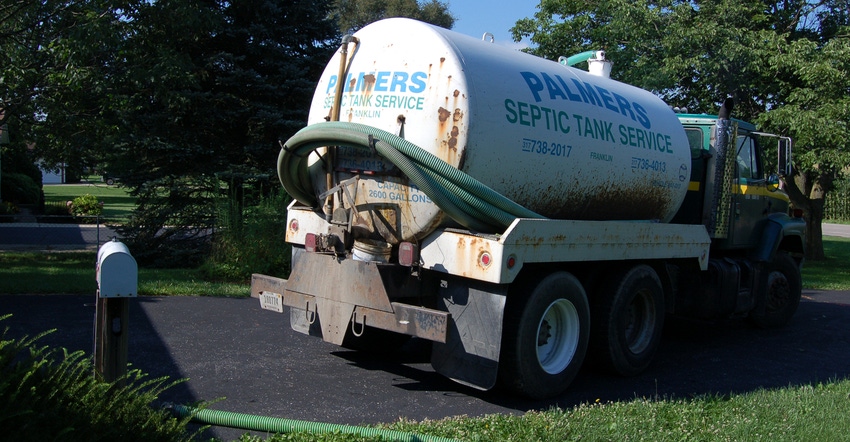
If your farmhouse is on a septic system, there’s no such thing as a “flushable” product. Gary Steinhardt says that’s the cardinal rule that can help avoid a clogged septic system resulting in toilets that don’t flush.
“The current health emergency related to the COVID-19 virus has placed more emphasis on cleaning of surfaces and hands,” says Steinhardt, a Purdue University Extension agronomist. “This is one way all of us can fight this illness. It’s critical that all of us be in the fight and do everything we can to limit the spread of this vicious virus.
“Many of us are using sanitary wipes to clean surfaces to great benefit. However, taking care of one problem may be leading to other problems later.
“How we dispose of these products is very important. If your household or commercial wastewater treatment uses an on-site sewage system with a septic tank, these wipes should never be flushed down the toilet into the septic tank.”
And when Steinhardt says “never,” he means never! That goes for a host of other items, including paper towels and feminine hygiene products.
Protect septic system
Here’s why. The septic tank is an excellent method of treating wastewater, but it can’t break down wipes or paper towels, Steinhardt says. In fact, these or other solid waste products create a hazard that may cause the on-site sewage system to fail.
“First of all, these products can plug the sewer line that leads from the house or business to the septic tank,” Steinhardt says. “This can result in a backup of sewage into the home. Besides making a tremendous, nasty mess, this would put residents or employees at considerable risk of disease. It requires immediate cleansing.”
If the solid waste makes it to the septic tank, it will not be broken down by the microorganisms in the tank, Steinhardt says. “They do a fine job, in most cases, of breaking down human waste and the required toilet paper, but they are completely inadequate to deal with excess quantities of solid waste,” he explains. “Excessive solid waste accumulates in the septic tank, causing the system to require pumping to relieve excess solids and floating material.”
These materials, if left unpumped, can plug pipes in the septic absorption field or cause the septic tank to overflow. This can result in the need for a costly repair or replacement.
Other issues
Even if you’re following guidelines and not putting things like flushable wipes down the toilet, your septic tank will need checking or pumping at regular intervals. How often you should pump the tank varies depending on several factors, including how many people are in the home, the size of the absorption field and of the tank itself, and whether you work at home or are gone during the day.
“If you have a septic system which is working at its limit anyway, having children home during the day during this crisis, or being home yourself, may challenge the system,” Steinhardt says.
Those living on septic tanks aren’t the only ones who should follow the rule of not flushing flushable wipes, Steinhardt adds. “They also create problems for municipal wastewater treatment systems,” he says. “Instead, they should be disposed of just like you dispose of other solid waste.”
Read more about:
Covid 19About the Author(s)
You May Also Like




